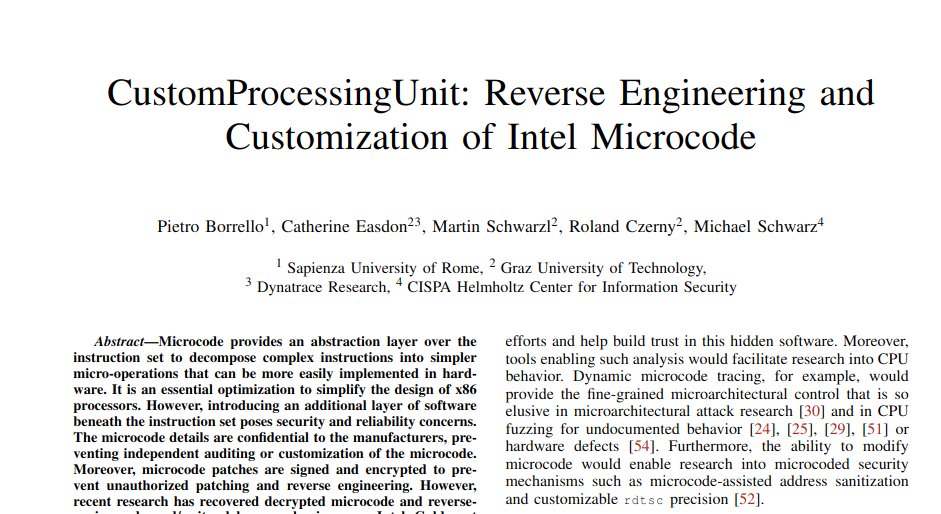
I'm super happy to share that our work "CustomProcessingUnit: Reverse Engineering and Customization of Intel Microcode" has been accepted at #WOOT23! 🎉
We extend our #BHUSA work to show how microcode tracing and patching can be useful to improve CPU performance and security 👀
We extend our #BHUSA work to show how microcode tracing and patching can be useful to improve CPU performance and security 👀

+ We trace microcode updates to reverse engineer the secret Intel microcode update algorithm and perform its security evaluation.
+ We present the first x86 PAC implementation, attack it with PACMAN, and provide the first public PAC implementation not vulnerable to the attack.
+ We present the first x86 PAC implementation, attack it with PACMAN, and provide the first public PAC implementation not vulnerable to the attack.
+ We design a novel breakpoint idea: microcode breakpoints, 1000x faster than software breakpoints, and show their application for fuzzing.
+ We present constant-time hardware division to efficiently protect cryptographic software from side channels on data-dependent operations.
+ We present constant-time hardware division to efficiently protect cryptographic software from side channels on data-dependent operations.
A preprint version of the paper is available at: pietroborrello.com/publication/wo…
And it is all open source!
github.com/pietroborrello…
Amazing collaboration with @cat_easdon @marv0x90 Roland Czerny and @misc0110 😁
And it is all open source!
github.com/pietroborrello…
Amazing collaboration with @cat_easdon @marv0x90 Roland Czerny and @misc0110 😁
• • •
Missing some Tweet in this thread? You can try to
force a refresh





